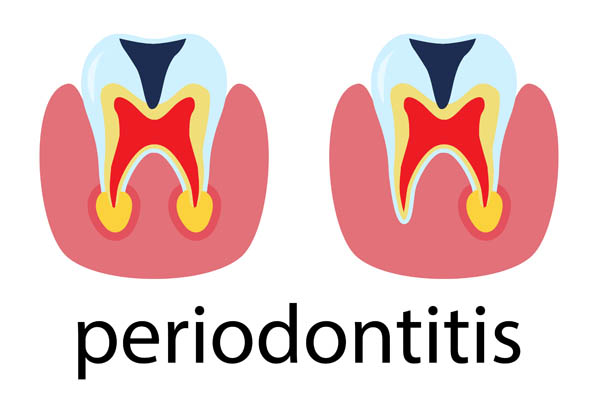Gum disease, which is also known as periodontal disease, is common, as it affects around 50% of individuals over the age of 30. The good news is that it is easily treatable in the early stages. However, if it remains untreated and advances, the outcomes are not good. In the progressive stages, treatment is more invasive to prevent the infection from spreading, to prevent jawbone loss, and to save the affected teeth.
Treatment options for early periodontal disease
Some people are in the very early stages of gum disease and do not even know it because there are no obvious symptoms. However, a periodontist can diagnose this issue during the exam. If there are very few signs, the patient may not need professional treatment. Rather, the periodontist will recommend improved oral hygiene habits to do at home.
As periodontal disease advances, there are some symptoms that the patient will notice. Some earlier signs include swollen and red gums, bleeding, heavy tartar buildup, and sensitive teeth. At this stage, the disease can be reversed. A periodontist will typically perform scaling and root planing, which is a deep cleaning that removes the buildup of tartar and plaque and prevents bacteria from adhering to the teeth.
Treatment options for late-stage gum disease
If someone ignores the early symptoms of periodontal disease, it enters the advanced stages, which is irreversible. Some signs and symptoms of advanced disease include:
- Recessed gums
- Chronic bad breath
- Exposed tooth roots
- Pus-filled lesions
- Pain in the gums
- Loose teeth
Pocket reduction surgery
If the gums have been recessed, there will be large pockets around the teeth. This can expose the roots, which results insensitivity. To treat this issue, the periodontist may perform a pocket reduction surgery, in which the gum tissue is folded back and the bacteria is removed.
Gum graft surgery
A gum graft may also be performed to replace the recessed tissues caused by periodontal disease. Tissue is taken from the soft palate or excess gum tissue elsewhere and is placed to cover up the tooth's root.
Abscess draining
If the bacteria infection has caused an abscess, the signs would be red, swollen, painful, and pussy lesions along the gumline. An abscess is serious, so the periodontist must drain the abscess, deep-clean the area to remove all infected parts, and possibly apply or prescribe an antibiotic.
Bone graft surgery
In the advanced stages of periodontal disease, the infection causes a loss of bone in the jaw. This causes the teeth to loosen and eventually fall out if the issue is not treated. Synthetic or natural bone can be placed in the area of loss so it can regenerate new bone.
Conclusion
Although it is common, periodontal disease is not something to ignore. It is reversible early on, but it can have devastating results if it is not treated.
Seeking treatment for periodontal disease is better in the early stages than in later, although there are treatment options for any stage. Contact our office to schedule a consultation with the periodontist as soon as possible.
Check out what others are saying about our services on Yelp: Read our Yelp reviews.
Related Posts
Periodontists Specialize in Soft Tissue: Gums and Cheeks
Periodontists can diagnose and treat conditions affecting the gums and cheeks. The soft tissues of the mouth are vulnerable to bacterial infection. Understanding how these dental professionals help patients can ease your …
What Makes Dentures Vulnerable to Breaking
Dentures are a great option to replace missing teeth, but they have flaws. One of the most common complaints from wearers is that these teeth break easily. The question is, why? Several …
Assessing Eligibility for Dental Implants From a Periodontist's Perspective
Periodontists work closely with the supportive structures of the mouth, such as the gums, so it likely comes as no surprise that dental implants are among the most common treatments that they …
When To See a Gum Recession Dentist
A gum recession dentist evaluates gum tissue that has receded, exposing the tooth root. Gum recession occurs when the gumline pulls away, often from inflammation, aggressive brushing, or bite stress. Exposed roots …

